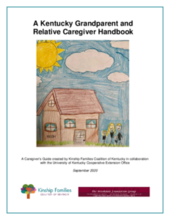Displaying 551 - 560 of 2509
This paper describes the upEND movement, a collaborative movement aimed at abolishing the child welfare system as we know it and reimagining how we as a society support child, family, and community safety and well-being.
The current study investigated factors associated with child maltreatment during the COVID-19 pandemic, including parental job loss, and whether cognitive reframing moderated associations between job loss and child maltreatment.
The purpose of this study was to enhance understanding of restrictive interventions in residential units as a means of improving professional practices involving children and youth in out-of-home care.
This study examined how custodial grandmothers navigated the process of their grandchildren being reunified with a biological parent.
The aim of this article is to contribute to ongoing discussions about the recently passed Canadian legislation, drawing on lessons learned in the United States context.
The objective of this paper is to report on the development and implementation strategy of a tool to be used for practice intervention during the pandemic.
"Hundreds of migrant children have been held in hotels and guarded by government contractors in recent months as part of a secretive new system that advocates warn puts kids in danger," says this article from CNN.
This handbook is meant as a reference guide to enlighten grandparents and relative caregivers on resources and information that may be available to them and their family.
Save the Children is recruiting a Senior Specialist, Emergency Mobilization to act as the deputy on the Mobilization team and ensure there is holistic deployment support and fully trained staff available on every domestic response in the US.
Save the Children is recruiting a Child Care Recovery and Resilience Senior Specialist to serve as the technical lead and manage the delivery of Save the Children’s child care recovery and resilience programs in U.S. disaster contexts that help communities rebound and build back stronger after disasters.

